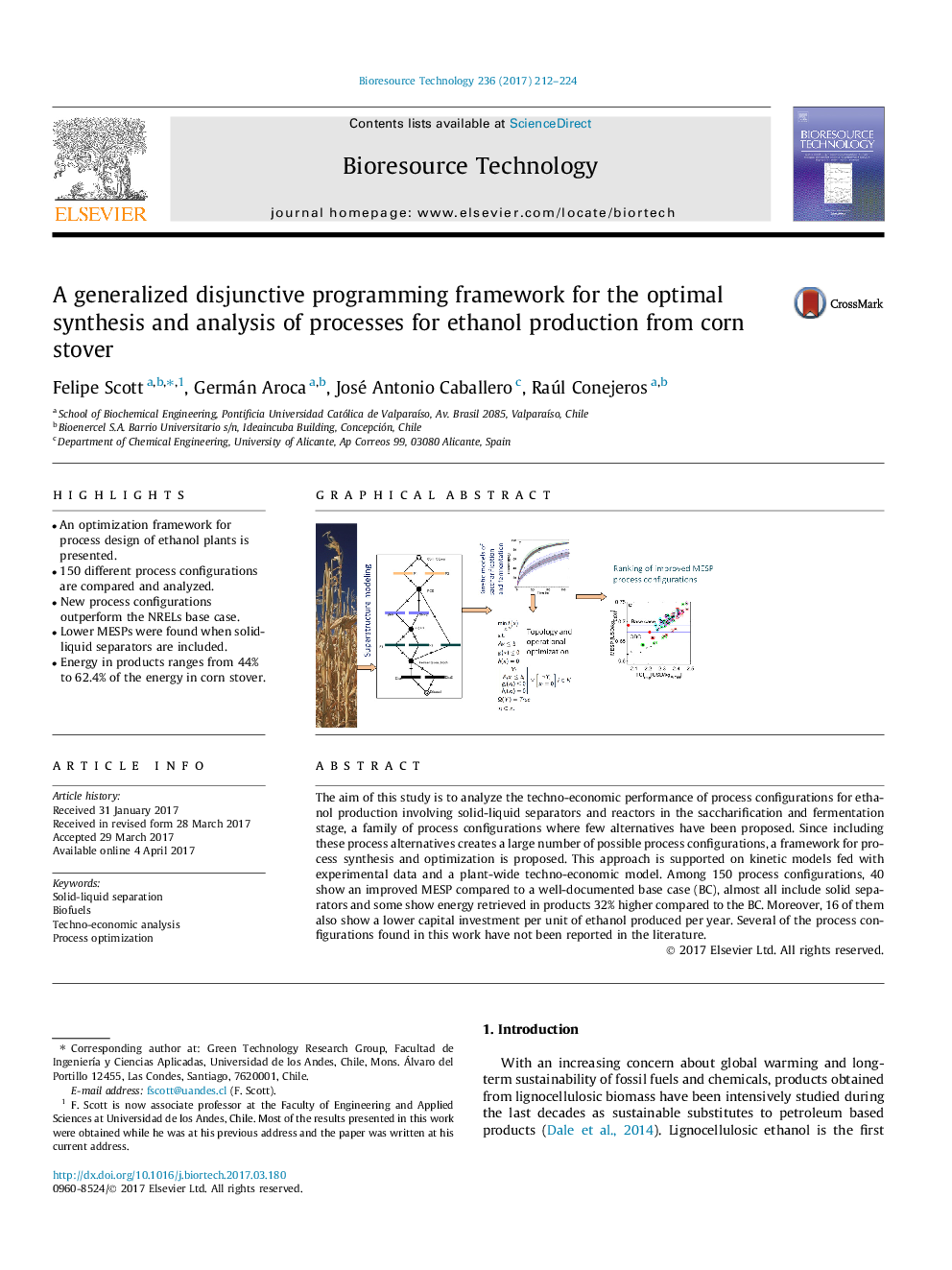| Article ID | Journal | Published Year | Pages | File Type |
|---|---|---|---|---|
| 4997113 | Bioresource Technology | 2017 | 13 Pages |
â¢An optimization framework for process design of ethanol plants is presented.â¢150 different process configurations are compared and analyzed.â¢New process configurations outperform the NRELs base case.â¢Lower MESPs were found when solid-liquid separators are included.â¢Energy in products ranges from 44% to 62.4% of the energy in corn stover.
The aim of this study is to analyze the techno-economic performance of process configurations for ethanol production involving solid-liquid separators and reactors in the saccharification and fermentation stage, a family of process configurations where few alternatives have been proposed. Since including these process alternatives creates a large number of possible process configurations, a framework for process synthesis and optimization is proposed. This approach is supported on kinetic models fed with experimental data and a plant-wide techno-economic model. Among 150 process configurations, 40 show an improved MESP compared to a well-documented base case (BC), almost all include solid separators and some show energy retrieved in products 32% higher compared to the BC. Moreover, 16 of them also show a lower capital investment per unit of ethanol produced per year. Several of the process configurations found in this work have not been reported in the literature.
Graphical abstractDownload high-res image (192KB)Download full-size image
